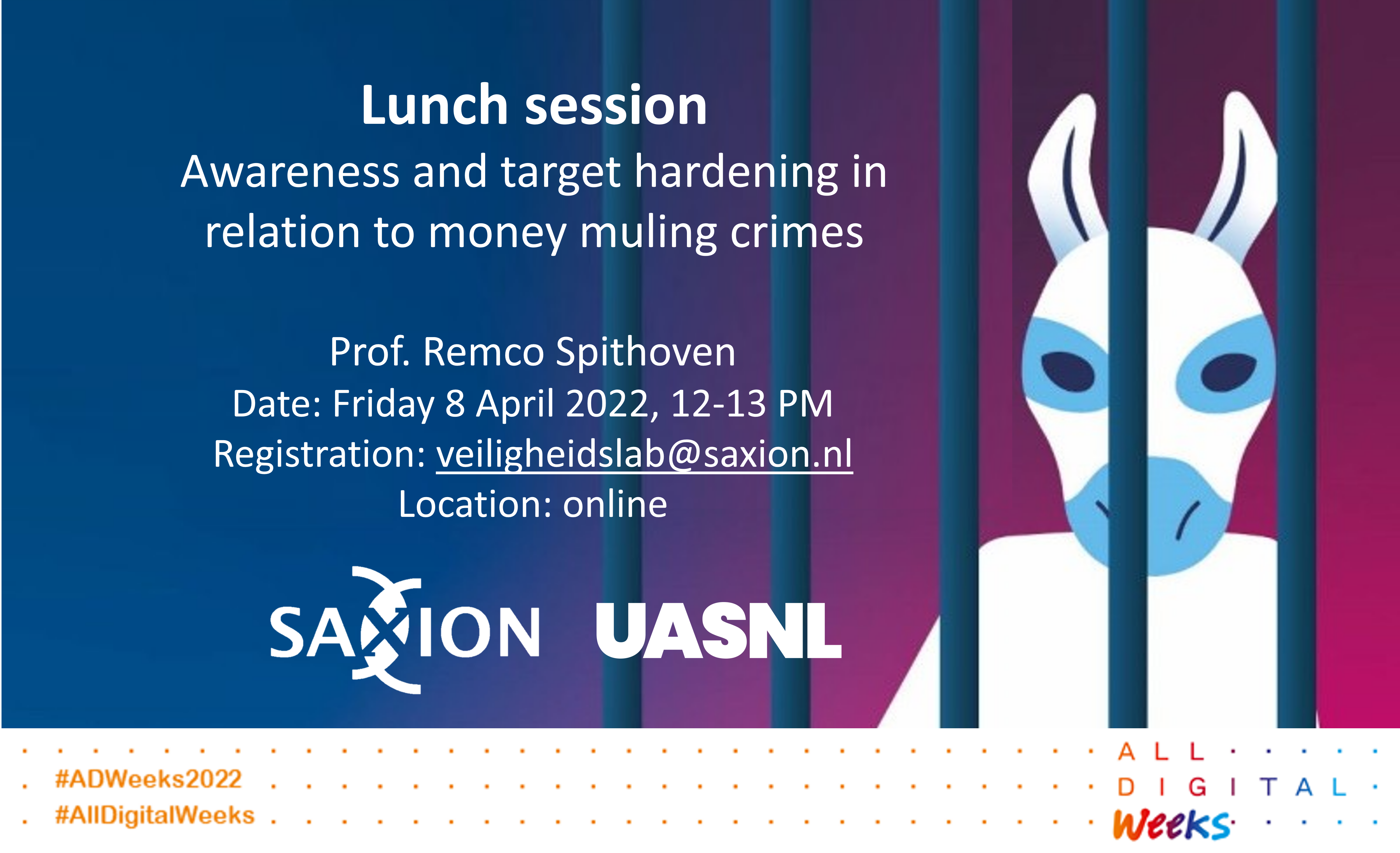
Cyber crime & cyber resilience: Awareness and target hardening in relation to money muling crimes
On 8 April, UASNL and Saxion University of Applied Sciences are organising an online lunch meeting on cybersecurity and money muling, as part of the All Digital Weeks. Professor Remco Spithoven, lecturer at Saxion’s Social Security group, will bring the audience state-of-the-art knowledge on cybercrime in the Netherlands, with a focus on money muling.
Money muling is a type of money laundering, where a ‘money mule’ is a person who receives money from a third party in their bank account and transfers it to another one. Saxion’s research found that seven percent of high school students in the Dutch town Deventer have received requests for online money muling. Although such individual requests may seem innocent, Europol data show that more than 90% of money mule transactions are linked to cybercrime. By participating, money mules are not only victims, but also accomplices to such crimes. Cybercriminals often target young people with intellectual disabilities or low digital skills.
Saxion University of Applied Sciences approaches this topic in its full complexity. Researchers coopererate with municipalities and regional security stakeholders to figure out which actions can increase cyber resilience among citizens and entrepreneurs.
The seminar will take place online, on Wednesday 8 April at 12:00-13:00 CEST. You can register to take part in the event by sending an email to veiligheidslab@saxion.nl
- 08/04/2022 - 12:00 - 08/04/2022 - 13:00
- This meeting will take place online
- Loes Rutten
-
Working Group